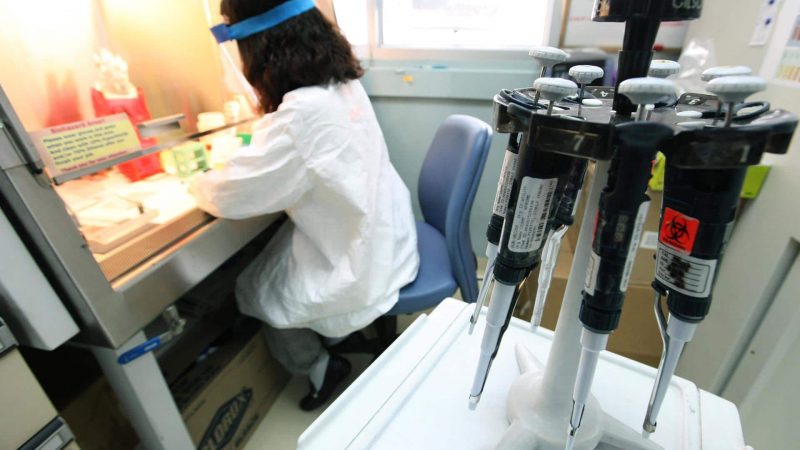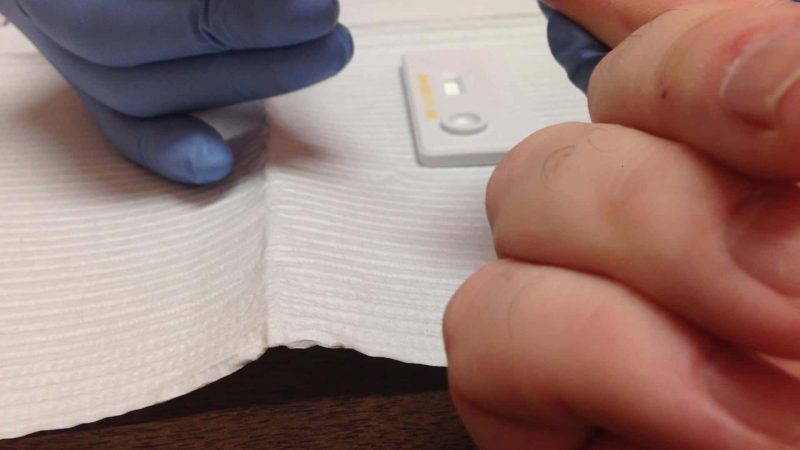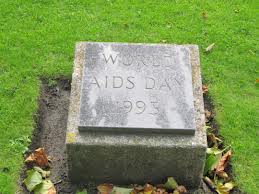Aids
UAB Infectious Disease Expert With COVID-19 Says “Stay Home”
University of Alabama at Birmingham AIDS researcher Dr. Michael Saag says he's tested positive for coronavirus. He made his diagnosis public in an effort to raise awareness of how to fight the disease.
CDC Director Visits Alabama to Discuss Ending HIV
The director of the Centers for Disease Control (CDC), Dr. Robert Redfield, visited Montgomery on Friday to discuss strategies to combat HIV.
Gay Men Blood Donors Not as Risky as Once Thought, Researchers Say
For decades, many gay men have been prohibited from donating blood. They were considered high-risk during the AIDS epidemic back in the 1980s. As of two years ago, they can donate if they’ve abstained from sex for a year, but some researchers say that’s unrealistic and unnecessary.
Interview: Michael Saag, M.D., Discusses His New Book
UAB researcher and physician Dr. Michael Saag is know around the world as an AIDS expert. He started working with AIDS in the early eighties, a time when the disease was masked in uncertainty. Since then, he's made AIDS research and improving patient treatment his life's work. This month, Dr. Saag published his memoir "Positive: One Doctor's Personal Encounters with Death, Life and the U.S. Healthcare System." Dr. Saag spoke with WBHM's News Director Rachel Osier Lindley about the book, what it's like to lose a patient and his deep concerns about the U.S. healthcare system.
HIV/AIDS in the South
A new report from the Southern AIDS Coalition says HIV has taken hold in the Deep South, plaguing some of the poorest people in the country and creating a health disaster.
Sizwe’s Test
Federal officials announced a major overhaul Tuesday of the government's efforts to develop an AIDS vaccine. The move comes after a promising vaccine didn't work and may have put people at risk of infection. Despite the setback, AIDS research conducted across the county, including at UAB, has turned a disease of death into a chronic disease that's managed. But in sub-Saharan Africa where infection rates are highest, the image of the AIDS epidemic is much different. Journalist Jonny Steinberg traveled to a village in his native South Africa to gauge AIDS treatment away from western medical institutions. He followed Dr. Hermann Reuter of Doctors Without Borders, and Sizwe Magadla. He's a successful, healthy, charismatic young man, who despite risky behavior in his past, refuses to test for AIDS. WBHM's Andrew Yeager spoke with Jonny Steinberg.
AIDS: The Epidemic in Alabama
More than 9-thousand Alabamians are living with HIV or AIDS; if you take into account those who've died from the illness, then more than 14-thousand Alabamians have been infected with the virus. And infection rates are expected to go up as the AIDS epidemic, so often thought of as a big city issue, becomes increasingly a rural issue and a southern issue. There are myriad challenges to getting the word out about HIV/AIDS -- there's the stigma, religion and a money shortage for starters. In a special report, 'AIDS: The Epidemic in Alabama', WBHM's Rosemary Pennington examines what people here in the state are doing to combat HIV.
Meth and AIDS
Methamphetamine is a cheap to make, cheap to buy drug. Its use is exploding in some parts of the country; the drug is called the biggest drug threat to Alabama by one agency. Some researchers are worried the increasing abuse of meth will spike another flare in the transmission of HIV. WBHM's Rosemary Pennington has more.
One Woman’s Story
HIV, once thought of as a virus that affected mainly men, is becoming more of a women's issue. The women who do become infected typically get the virus from a husband or boyfriend. Marvelyn Brown talks about her life as an HIV positive woman in the South.
Alabama’s AIDS Orphans
You can't really have a discussion about AIDS in Africa without talking about AIDS oprhans. But a researcher here in Alabama thinks, when it comes to AIDS orphans, we should be looking closer to home.
World AIDS Day
More than forty million people the world over are living with HIV/AIDS with five million new infections this year alone. December 1st is World AIDS Day. Started in 1988 it is an international event which aims to raise awareness of HIV/AIDS issues. In this web excluse WBHM's Rosemary Pennington speaks with an AIDS educator about the day and the epidemic.
New AIDS Drug
There is a pantheon of drugs used to treat HIV/AIDS -- the problem is that the virus mutates, keeping up with it is proving to be a problem. Researchers at Rutgers University, though, have created a drug they think could mean longer-lasting treatment for AIDS patients.
Education Budget Cuts
NPR News and Classical Music for North Central Alabama
















